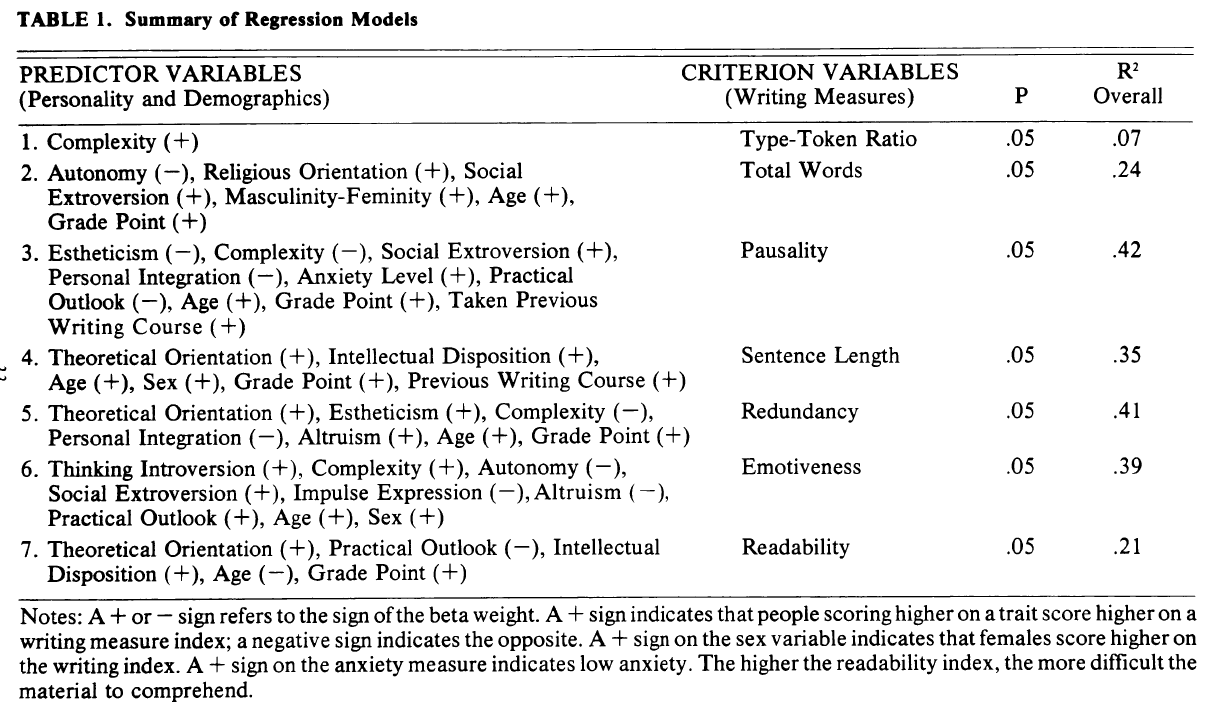Does similar writing style in small texts such as on Twitter or long texts such as articles/novels tell us anything about similarity between
- "thinking process" OR
- "personality" OR
- "writing preferences" etc.,
of the writers?
For some instances we can be sure about such correlation, for example persons who like to use abbreviation(short-form), e.g. nite(“night”) or abbreviation(acronym), e.g. lol (“laugh out loud”), or emoticons in short-texts like tweets, are hesitant to write long words(I couldn't find any research on this , but this is being said after a small survey by me and also this deduction seems trivial). Of course, there can be a number of reasons for some preferred writing style like role of culture.
Similarly can we say something about relation between the people who follow similar writing style? By similar writing style, I meant following kind of things,
- short-text : use of emoticon vs writing emotion in plain text
- short-text : use of Non-dictionary slang, e.g. that was well mint vs “that was very good”
- long-text and short-text : preference to adjectives than combination of verb and adverb
Is there any resource throwing light in this direction in a scientific way?
